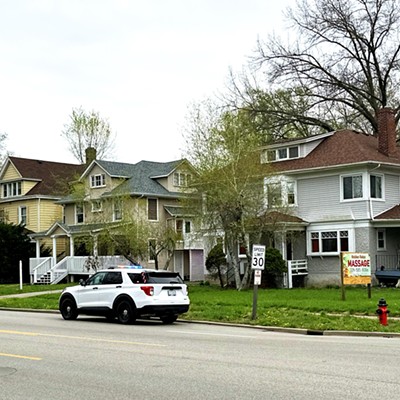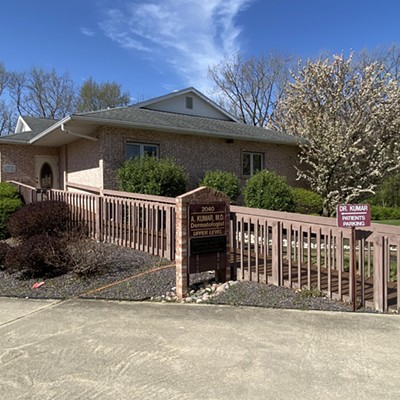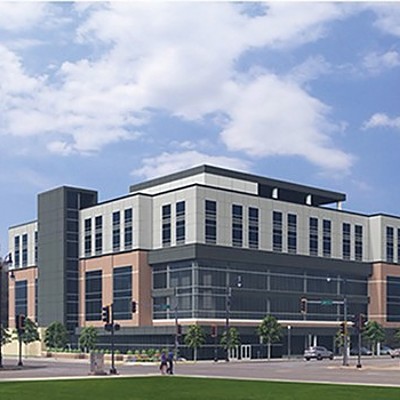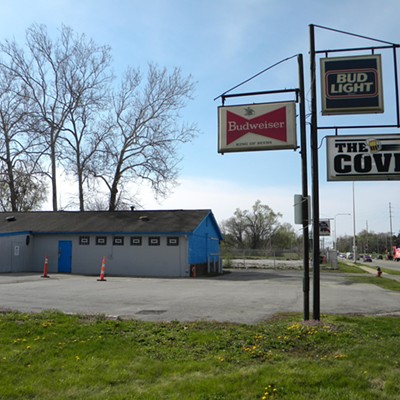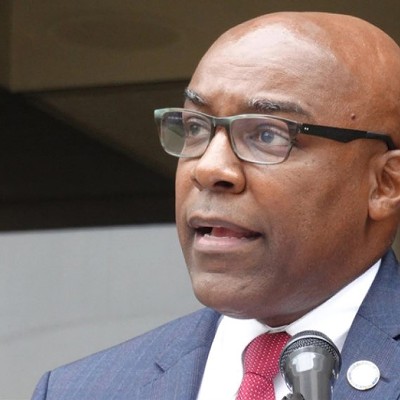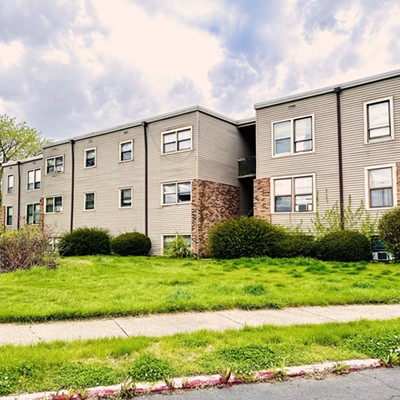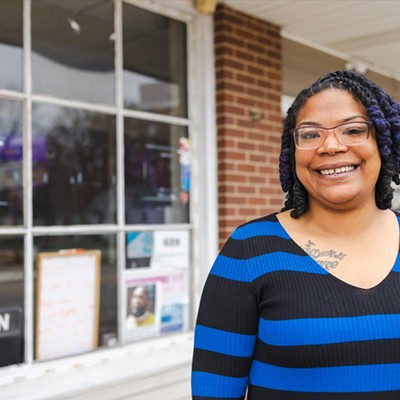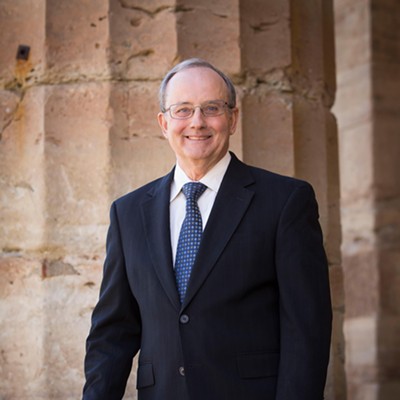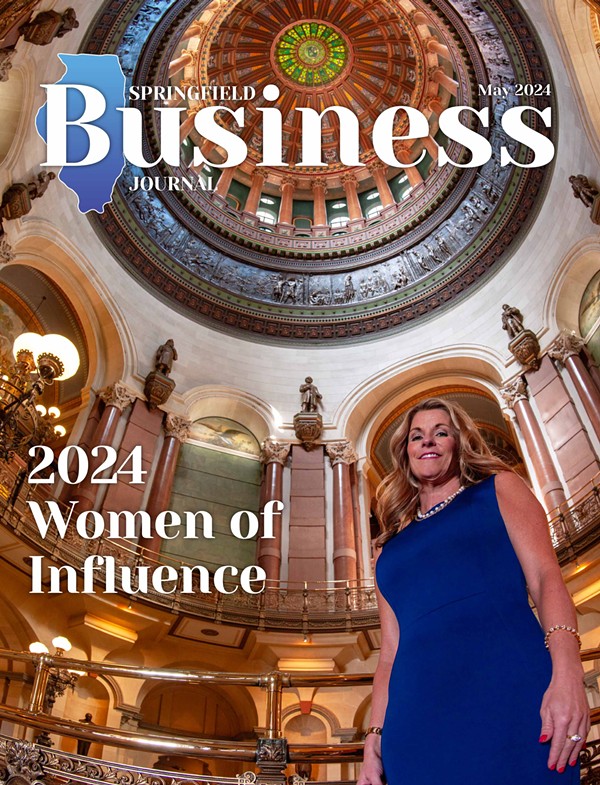Water rates in Springfield will
rise 32% beginning March 1 and another 32% a year later after contentious
debate among City Council members and a 7-3 vote on Feb. 20.
“We don’t have a choice,” Ward 10 Ald. Ralph Hanauer said of the
increases, the first since 2011.
He blamed prior city councils and prior mayoral administrations
for inaction that led to City Water, Light & Power’s water division
becoming cash-strapped and ill-prepared to deal with state-mandated lead line
replacements and other infrastructure improvements.
But Ward 6 Ald. Jennifer Notariano, one of three council members
voting against the increases, told Hanauer, “We do have a choice.”
She said the combined increase, which will total 74% after two
years compared with current rates, is too high and “not necessary.”
Notariano said many residents will be financially harmed by the hikes, estimated to increase the average residential customer's water bill by $4 or $5 a month in the first year, plus another $5 to $7 a month additional cost in the second year.
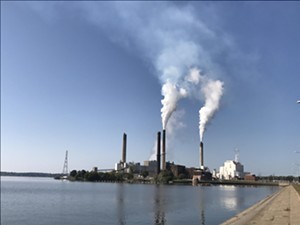
When the proposed 4% cap deadlocked on a 5-5 vote, Mayor Misty
Buscher broke the tie among the 10 alderpersons by voting against the cap.
Several voting against the caps said they wanted to give CWLP more
financial latitude to deal with future inflation and cost increases.
Ward 3 Ald. Roy Williams Jr., who joined Notariano and Ward 2 Ald.
Shawn Gregory in voting against the increases, said he wasn’t convinced all of
the $18.4 million to be raised by new rates in the next two years would be
needed.
“There’s always a way around this,” he said. “We can fix this
without taking it out on our citizens.”
The council also approved 32% annual sewer rate increases for the
fiscal year beginning March 1 and the following fiscal year. That vote, with
nine alderpersons voting “yes” and Williams voting “present,” lacked the debate
that preceded the water rate decision.
The increase in sewer rates – the first since July 2022 – will pay
for sewer system improvements mandated by the federal government and other
needed improvements but not for the treatment of sewage, Chief City Engineer
Nate Bottom said. The increases will generate about $6 million over the next
two years, he said.
Sewage treatment is handled by another unit of local government,
the Sangamon County Water Reclamation District.
The debate about water rates came during the same four-hour-long
meeting where the council adopted a $680 million-plus city budget for fiscal
2025.
The budget included a corporate fund of more than $190 million,
which funds police, fire and public works departments and other core city
services. The budget also funds the operations of CWLP, the city’s municipally
owned utility.
The budget passed unanimously and included $12 million in spending
from the federal American Rescue Plan Act. That money represents the last of
$33.8 million in ARPA funds received by the city to deal with ramifications of
the COVID-19 pandemic.
Changes made to the budget before final passage included plans for
the city to borrow $10 million for the ongoing construction of three new fire
stations.
The borrowing will reduce part of the $23 million in corporate
fund spending and $7 million in ARPA spending that had been budgeted for fiscal
2024. The borrowing will free up corporate fund dollars to pay for increases in
the new fiscal year budget, Buscher administration officials said.
The budgetary changes also reduced originally proposed pension
payments by $5 million, but the new budget still maintains payments of 100% of
state-mandated minimum levels.
The council considered, but ultimately voted against, a proposed
amendment by Ward 4 Ald. Larry Rockford to remove $280,000 from the fiscal 2025
budget that had been set aside for the purchase of a vehicle to start a
municipally operated ambulance service.
Rockford said he hasn’t decided whether he supports such a service
to supplement what is provided by the two for-profit and one nonprofit
ambulance services operating in Springfield. But he said the issue needs more
study before money is included in the city budget for an ambulance.
Ward 7 Ald. Brad Carlson said he opposed the amendment because
leaving the money in the budget would “elevate the discussion” and give local
hospitals, providers and city officials more of an incentive to have in-depth
discussions on the pros and cons of a potential municipally operated ambulance
service.
The council vote on Rockford’s amendment was 5-4. Voting against
the amendment, along with Carlson, were Hanauer and alderpersons Chuck Redpath
of Ward 1, Erin Conley of Ward 8 and Jim Donelan of Ward 9. Voting for the
amendment were Rockford, Gregory, Williams, Rockford and Notariano.
Ward 5 Ald. Lakeisha Purchase said she voted “present” because she
sits on the board of the nonprofit ambulance provider, MedicsFirst of
Springfield.
The budget also includes $250,000 in ambulance supplies.

